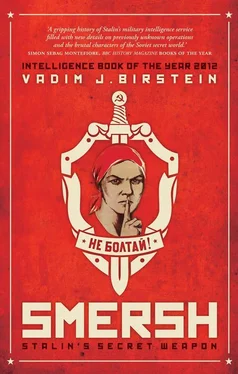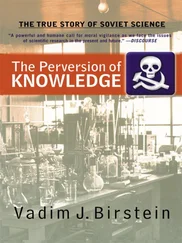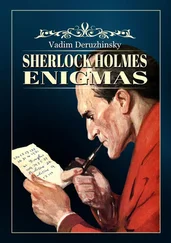In April 1946, a decision to replace Merkulov with Abakumov was made. On the evening of April 24, Abakumov, Merkulov, and Ogoltsov were summoned to the meeting of ‘the Six’ (minus one) in Stalin’s office. 7Stalin, Beria, Zhdanov, Malenkov, and Mikoyan attended the meeting; Molotov was traveling abroad. The meeting started at 11:35 p.m. and most probably included a discussion of the reorganization of the MGB and the replacement of Merkulov with Abakumov. At 12:30 a.m., Abakumov, Merkulov, and Ogoltsov left the office, having been ordered to prepare a draft of the new MGB structure.
On May 4–7, 1946, the Politburo approved the draft. 8Merkulov was dismissed, and Abakumov was appointed the new MGB Minister. The reasons behind Merkulov’s dismissal became clear only after August 20, 1946, when Stalin dictated a Politburo resolution that stated: ‘Comrade Merkulov, while holding an extremely responsible position [i.e., State Security Commissar/Minister] was dishonest and did not inform the Central Committee about a difficult situation in the CheKa [Stalin continued to call the Soviet secret service by its earliest name], and until the last moment concealed from the Central Committee the fact of the failure of the [intelligence] work abroad.’ 9
Apparently, Stalin was referring to three serious failures of the 1st NKGB Directorate (foreign intelligence). In September 1945, the cipher clerk of the Soviet Embassy in Ottawa, Igor Gouzenko, defected to the Canadian authorities. 10He provided the Canadian, British, and American security services with detailed information on about two hundred GRU and NKGB spies in Canada and the United States who were involved in Soviet atomic espionage. Additionally, two months later, in November 1945, the former Soviet agent Elizabeth Bentley began revealing to the FBI her knowledge of NKGB operations in the United States. 11
Finally, the NKGB deputy rezident (leader of a spy group) in Turkey, Konstantin Volkov, tried to defect to the British. This time the NKGB reacted immediately and a team of NKGB agent-boeviki (combat agents), headed by Andrei Onishchenko, was sent to Turkey without delay. 12Onishchenko was an experienced intelligence officer and in 1943, while he was in charge of security in Tehran during the meeting of Stalin with Churchill and Franklin D. Roosevelt, Onishchenko ‘overplayed’ the German intelligence terrorist group headed by the legendary Otto Skorzeny. In 1945, he headed the Middle East Department within the 1st NKGB Directorate.
On September 21, 1945 the team arrived in Turkey; Onishchenko had a cover of a diplomatic courier. Three days later the team put the captured and sedated Volkov and his wife on a plane to Moscow. Volkov was secretly tried, sentenced to death, and executed. But this small triumph by the NKGB boeviki who prevented Volkov’s defection was not enough to save Merkulov.
At Stalin’s suggestion, the Politburo not only dismissed Merkulov but also demoted him to a candidate for the Central Committee membership. 13After this, his high-level party career was over. In August 1946, Merkulov was appointed a deputy head, and from April 1947, head of the Main Directorate of Soviet Property Abroad of the Council of Ministers—an organization through which the Soviet Union managed the operation of plants, mines, and oil fields in the occupied territories of Austria, Germany, and Romania. Pavel Fitin, head of the 1st NKGB Directorate who was in charge of all operations of Soviet foreign intelligence during WWII, was also dismissed and for three months, he had no job at all.
The NKGB intelligence failures were only an excuse for the dismissals. Merkulov was a devoted ally of Beria and felt uneasy about dealing with Stalin. After his dismissal, Merkulov wrote to Stalin: ‘You, Comrade Stalin, once called me “shy.” Unfortunately, this was true. I felt uncomfortable calling you on the phone and I was even more uncomfortable about writing you regarding many issues that I wrongly believed were not important enough for your attention during the war, because I knew how busy you were. The shyness I felt resulted in my making mistakes. Mainly, there were a few occasions when I didn’t inform you at all, or informed you in smoothed-over terms, about issues that I should have reported to you immediately.’ 14
Stalin clearly wanted an MGB Minister who wasn’t shy, and who was totally devoted and subordinated to him. And from April 1943 onwards, Abakumov was subordinated directly to and only to Stalin. Most probably, Stalin had already been planning some future trials in his mind and Abakumov, who had organized the very efficient operation of SMERSH, was the best candidate for the job.
Later Merkulov blamed Abakumov for his fall from grace, saying that Abakumov ‘was no less ambitious and power-loving than Beria, but [far] more stupid.’ In June 1953, Merkulov wrote to Nikita Khrushchev about the situation back in 1946: ‘Abakumov stopped taking into consideration the opinion of the Politburo members… Beria was extremely afraid of Abakumov and tried to preserve a good relationship with him against all odds, although he knew that Abakumov was a dishonest man… Abakumov complained about me to Comrade Stalin and the Central Committee… For two years I did not even shake hands with Abakumov.’ 15But even if Abakumov hated Merkulov and had intrigued against him, this was not enough to prompt Stalin’s decision to replace Merkulov by Abakumov. More like he was seeking, through Abakumov, to put the MGB under his direct control. In October 1950, Stalin ‘pardoned’ Merkulov and appointed him Minister of State Control.
However, it seems that Abakumov was fascinated with power politics. While he was still head of SMERSH, Abakumov carefully studied the Nazi hierarchy and relationships between members of Hitler’s entourage. As Daniil Kopelyansky, the investigator whom Abakumov considered to be his personal translator, recalled, in 1945–46 Abakumov used to watch Nazi documentaries about Nazi leaders for hours. 16After the war he also went to the Kremlin for a meeting with Stalin in a trophy limousine that had belonged to Heinrich Himmler. Perhaps Abakumov identified with Himmler.
In the meantime, on May 6, 1946 Abakumov presented the Politburo with a proposal regarding his new deputies:
Top Secret
USSR Council of Ministers
To: Comrade Stalin I. V.
I am sending, for your approval, a list of deputies to the USSR State Security Minister:
Ogoltsov Sergei Ivanovich, Lieutenant General, who until now worked as Deputy State Security Commissar, as [deputy] on general questions [a new title for the first deputy];
Selivanovsky Nikolai Nikolaevich, Lieutenant General, Deputy Head of the Main Directorate ‘SMERSH’;
Blinov Afanasii Sergeevich, Lieutenant General, Head of the Moscow Branch Directorate of the State Security Ministry;
Kovalchuk Nikolai Kuzmich, Lieutenant General, Head of the SMERSH Directorate of the Transcarpathian Military Region;
On the Cadres, Svinelupov Mikhail Georgievich, Major General, who until now worked as Deputy State Security Minister.
I am asking for your decision.
May 6, 1946. 17
It is clear that Abakumov was ordered, probably at the previous Politburo meeting, to take only two of his future deputies from SMERSH (Selivanovsky and Kovalchuk) and the rest, from Merkulov’s MGB. Abakumov’s new first deputy would not be his SMERSH ‘alter ego’ Selivanovsky, but Ogoltsov, with whom Abakumov had never worked before. Probably Stalin wanted to keep an eye on Abakumov through Ogoltsov, who would be a candidate for Abakumov’s immediate replacement, if it became necessary.
Stalin wrote in the right upper corner of Abakumov’s list of proposed deputies: ‘I agree. J. Stalin,’ and the next day the Politburo formally approved Abakumov’s deputies. Now Selivanovsky supervised military counterintelligence, and Kovalchuk controlled the interior (domestic) counterintelligence. There was no question that Kovalchuk could do his new job. Nikola Sinevirsky, who once translated the interrogation of a Hungarian POW for Kovalchuk (at that time the head of the SMERSH Directorate of the 4th Ukrainian Front), said of Kovalchuk: ‘Loyal SMERSH operatives admired his [Kovalchuk’s] intelligence and lived in deathly fear of his influence in high [C]hekist circles… He was a general whose conscience was stained with blood of hundreds of thousands of Russians and peoples of other countries… I observed for the first time this slim, averagesized man. His most remarkable features were his eyes, smiling, yet alarmingly sharp and piercing.’ 18
Читать дальше












